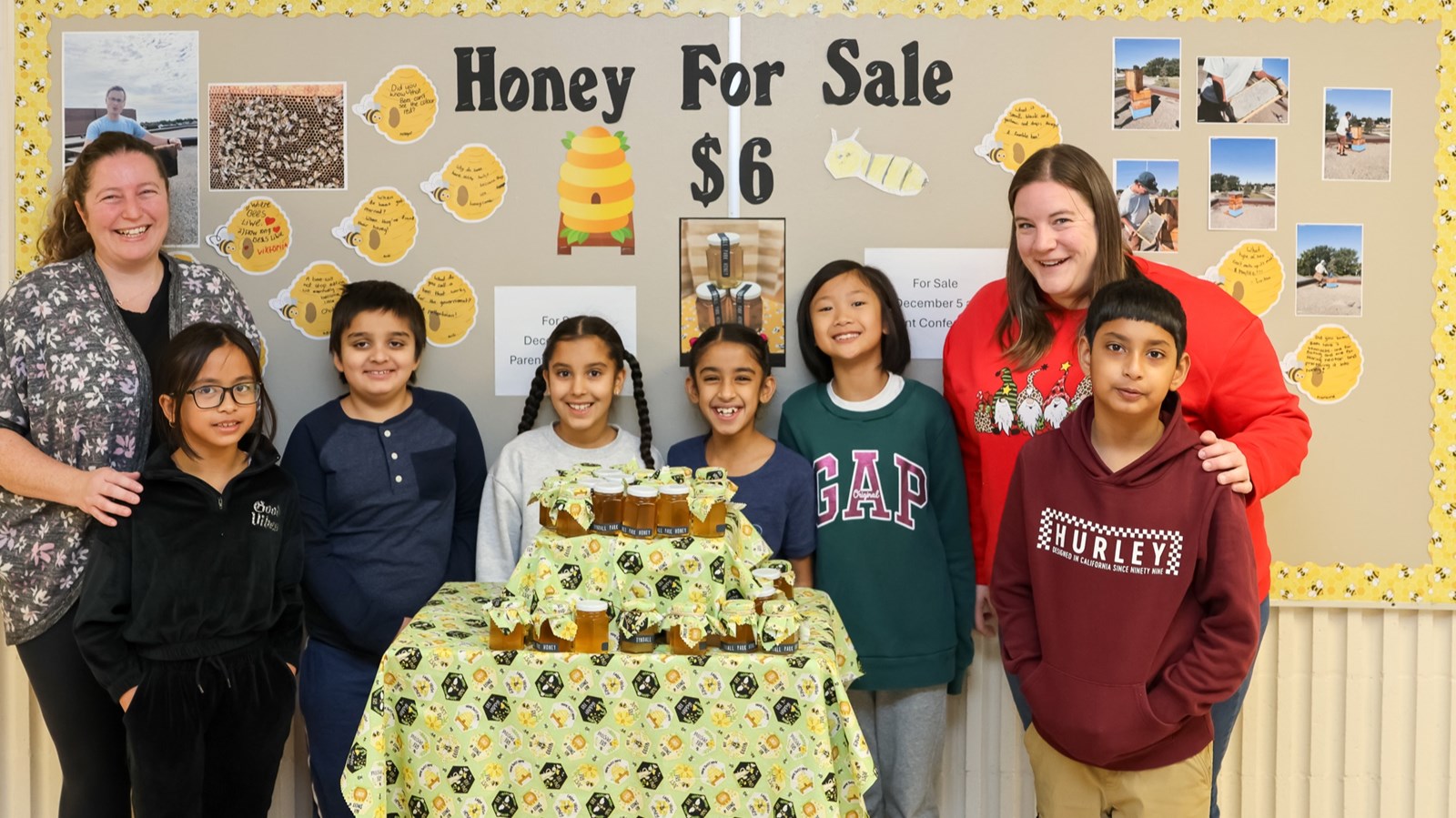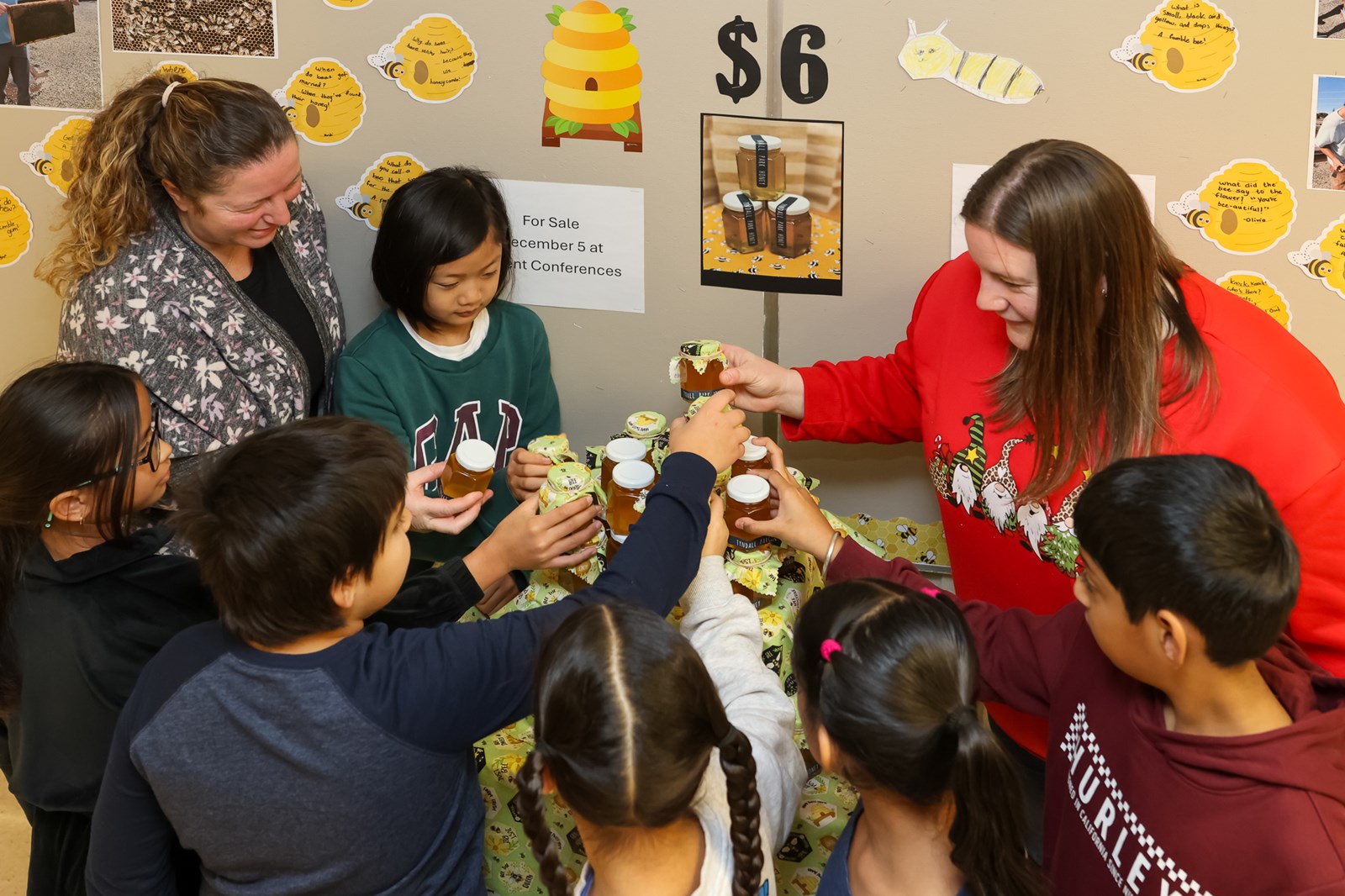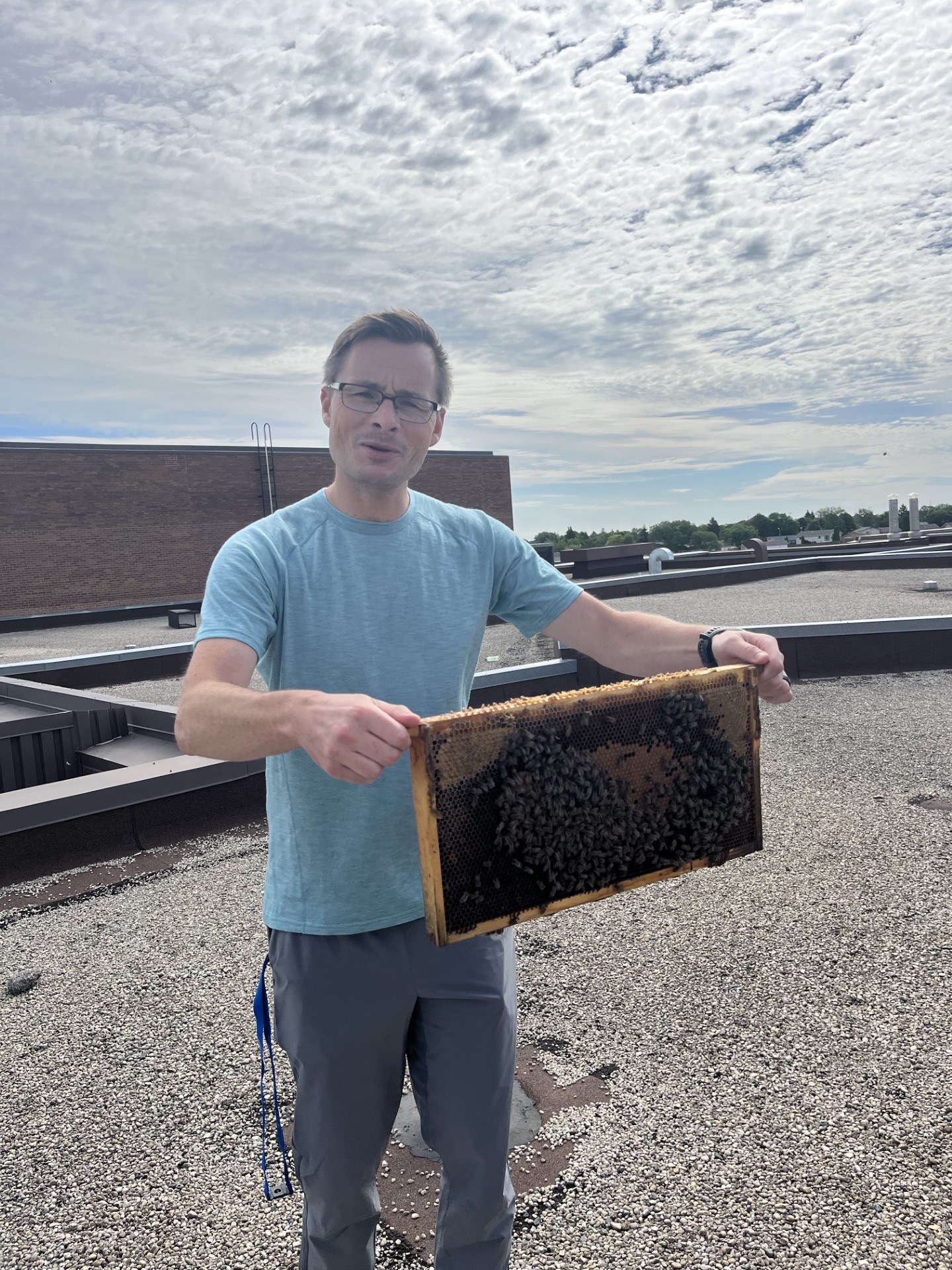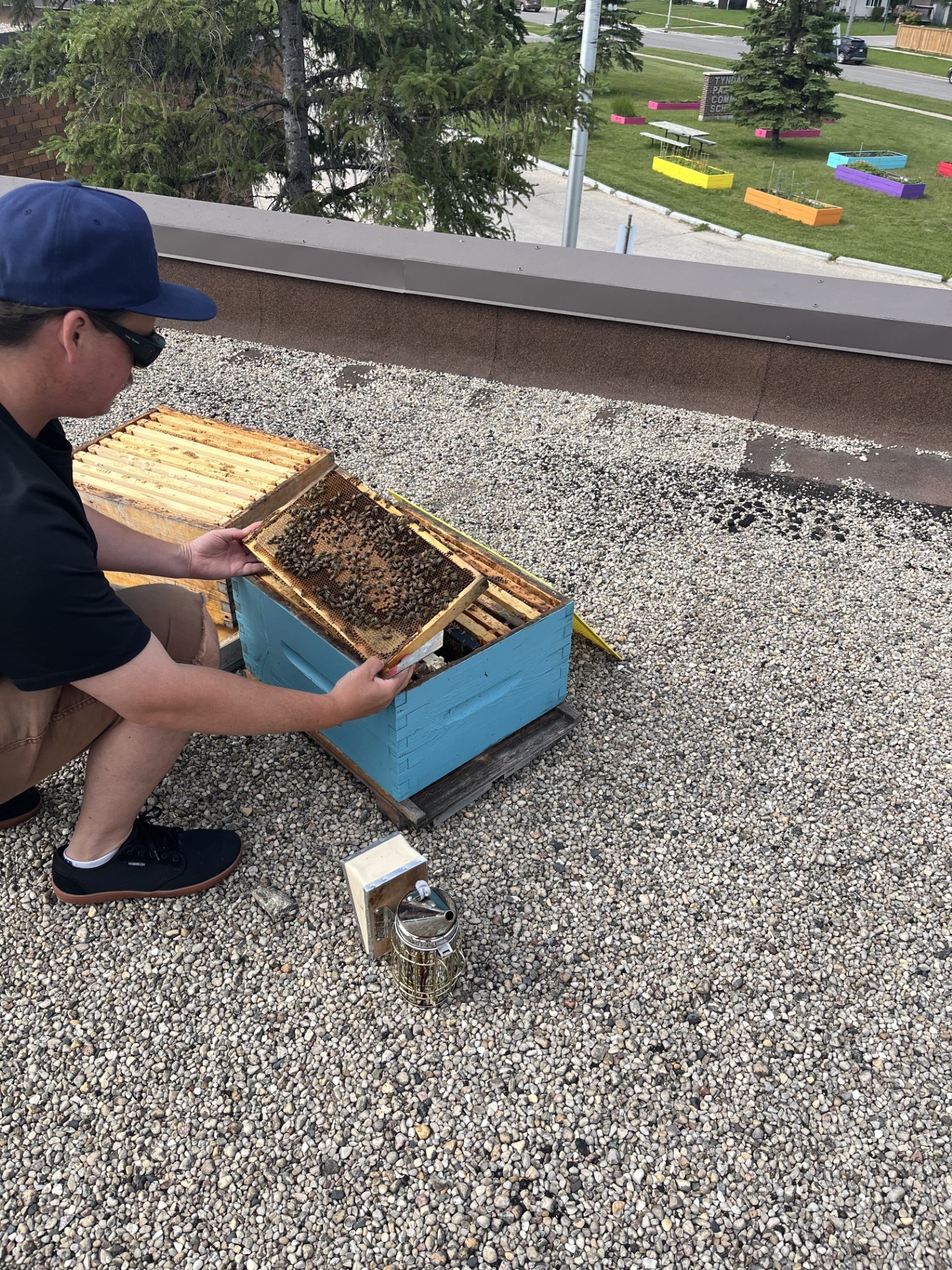Sweet Success: Tyndall Park's Rooftop Honey Adventure
December 4, 2024
Have you heard the buzz about what's happening at Tyndall Park Community School? What started as a simple idea to help the environment has become a big project combining sustainability, community engagement, and hands-on learning.
Late in the spring of 2024, the school's Environmental and Sustainability Development (ESD) committee achieved a remarkable milestone by installing a rooftop beehive. With the expertise of local apiarist Jordan Janisse from Sweetmakers Honey, the school transformed an unused roof space into a thriving hub of ecological learning.
"This project is about so much more than just producing honey," explains Ms. Jestadt.
"It's about teaching students the critical role bees play in our ecosystem and connecting them directly with nature." The results have been nothing short of sweet.
The small but mighty hive produced an impressive 200 jars of honey, demonstrating the remarkable productivity of these tiny workers. But the project's impact extends far beyond the honey harvest.
Ms. Jestadt's Grade 5/6 class has been at the forefront of this innovative learning experience. The students also had an opportunity to gain financial literacy, carefully calculating the economics of honey production. They worked out precisely how many jars they would need to sell to make the project sustainable and ensure the hive's return in the spring of 2025.
Grade 5 student Francine F said, "The honey that we have for sale at Tyndall Park School is local, from the roof! Not from a store!"

The ESD committee plans to use the funds raised from the sale of honey to organize learning events for all students in the coming year.
The educational benefits planned are multifaceted. Students will learn about the intricate social structure of bee colonies and understand the specific roles of worker bees, drone bees, and the queen. They will also discover the complex honey production process and gain insights into urban beekeeping.
"We're not just teaching science," says the principal, Gisele Mospanchuk.
"We're showing students how small actions can have significant environmental impacts."

The project also addresses critical environmental concerns. Bee populations worldwide are threatened, and each community initiative helps support these essential pollinators.
Tyndall Park maintained a rooftop hive to contribute to local wildlife preservation and the broader food chain. Local health advocates point out an additional benefit: Consuming locally sourced honey can help minimize seasonal allergies, providing a natural health boost to the community. The honey is more than just a product; it shows that our local environment is healthy. As word spreads about the rooftop hive, excitement grows.
"Who knows?" Jordan Janisse muses, "We might be nurturing the next generation of urban beekeepers right here at Tyndall Park."
The project represents more than an educational experiment. It's a great example of how schools can teach students about the environment and help the community.

By bringing bees onto the school's roof, Tyndall Park Community School has shown that learning can also happen outside the four walls of the classroom.
As the school looks forward to continuing the project in 2025, one thing is clear: this is just the beginning of a sweet journey of discovery.


